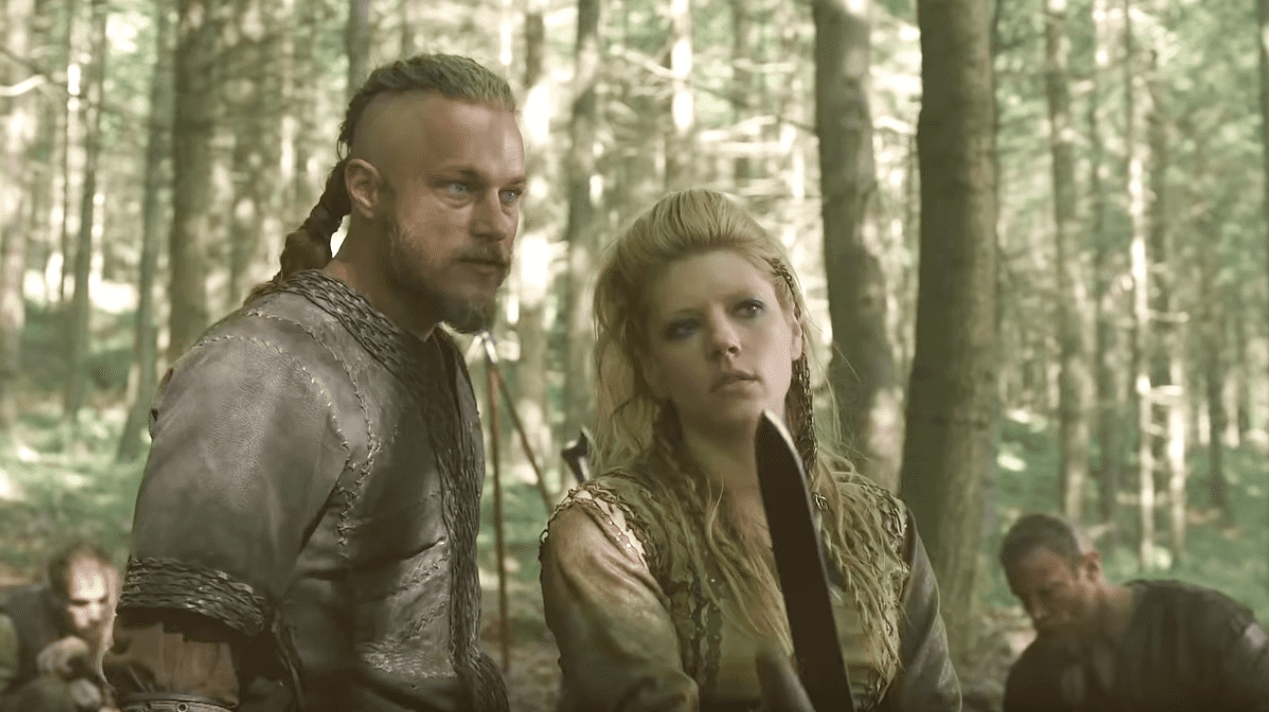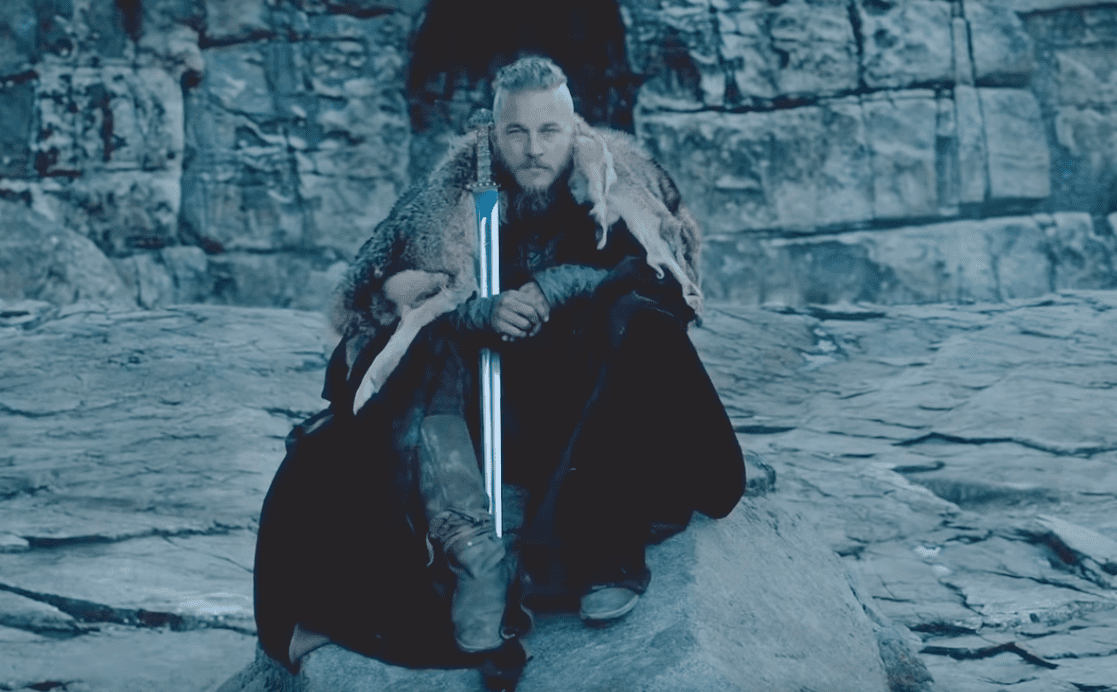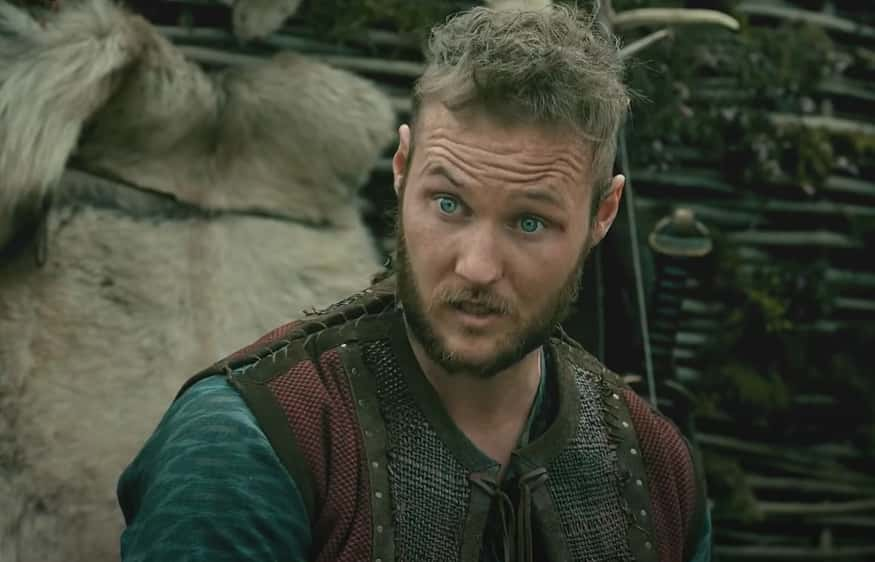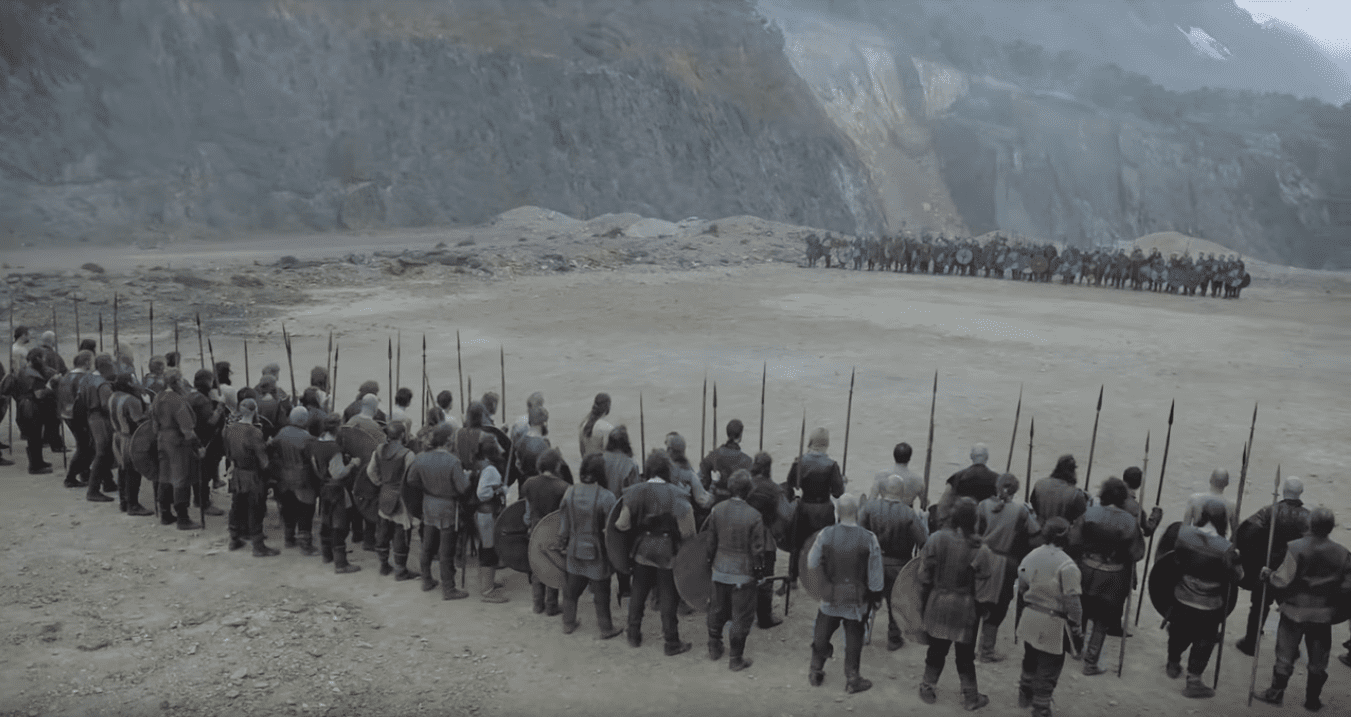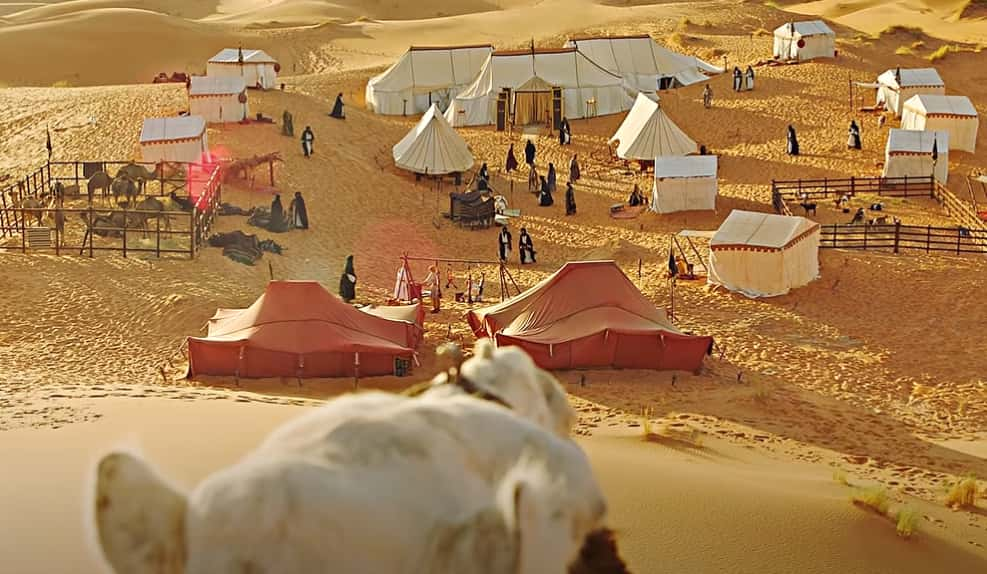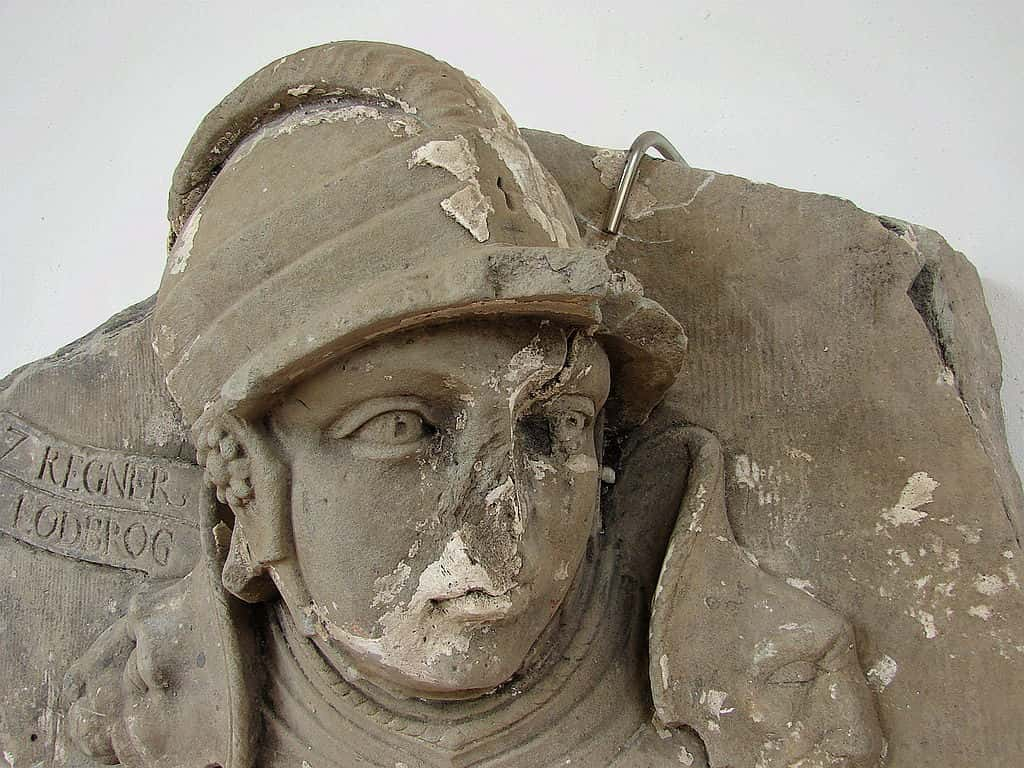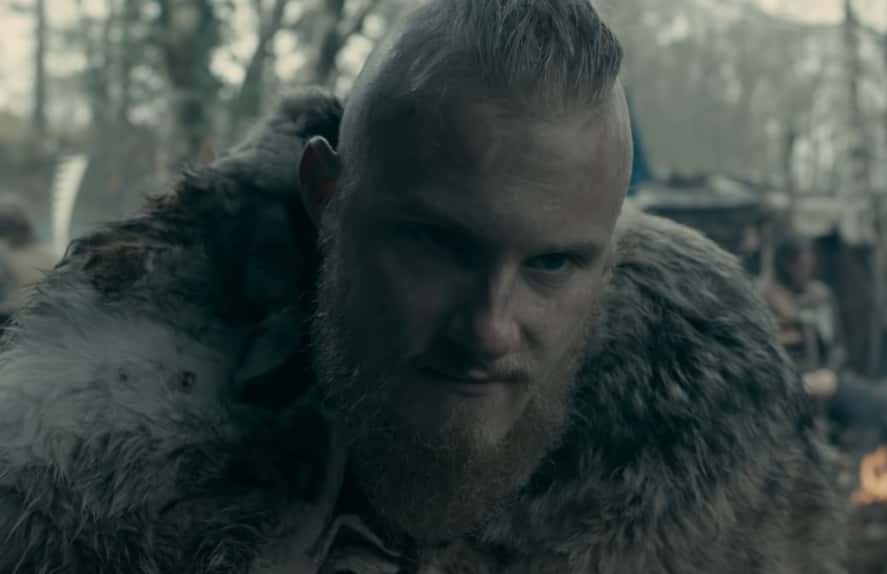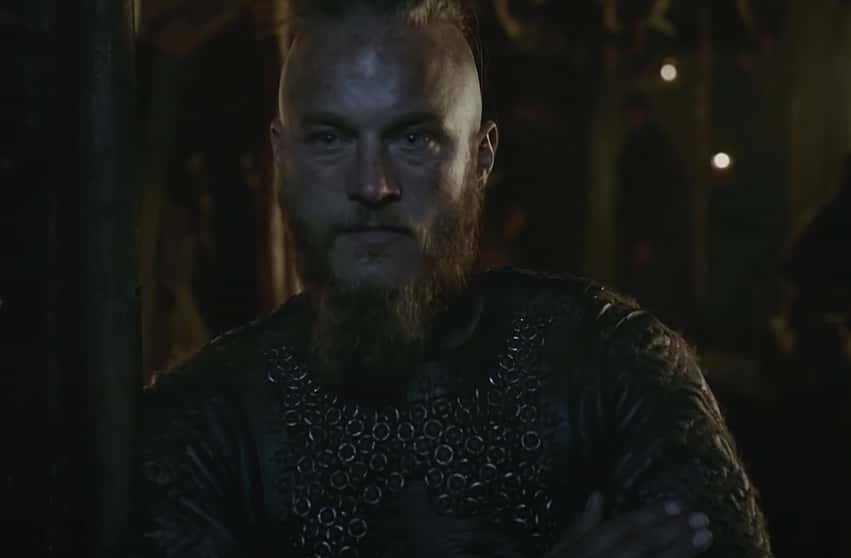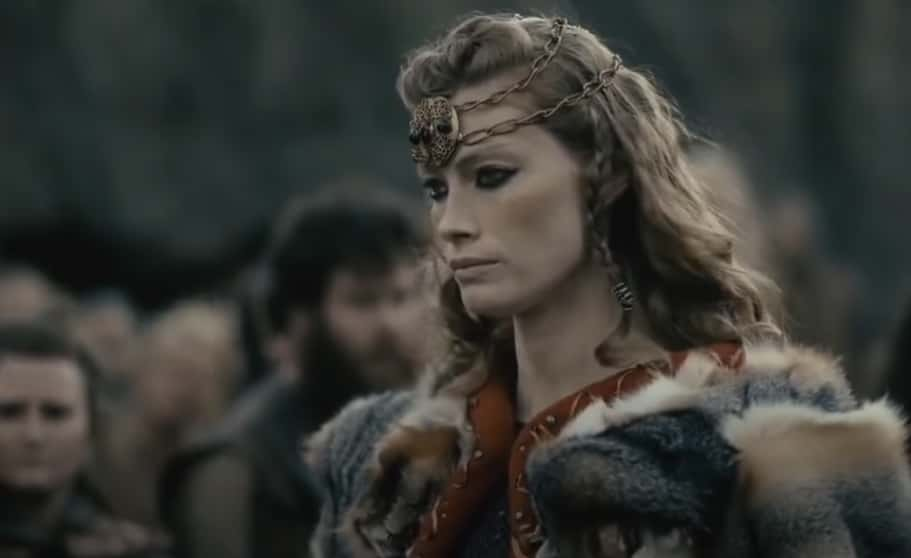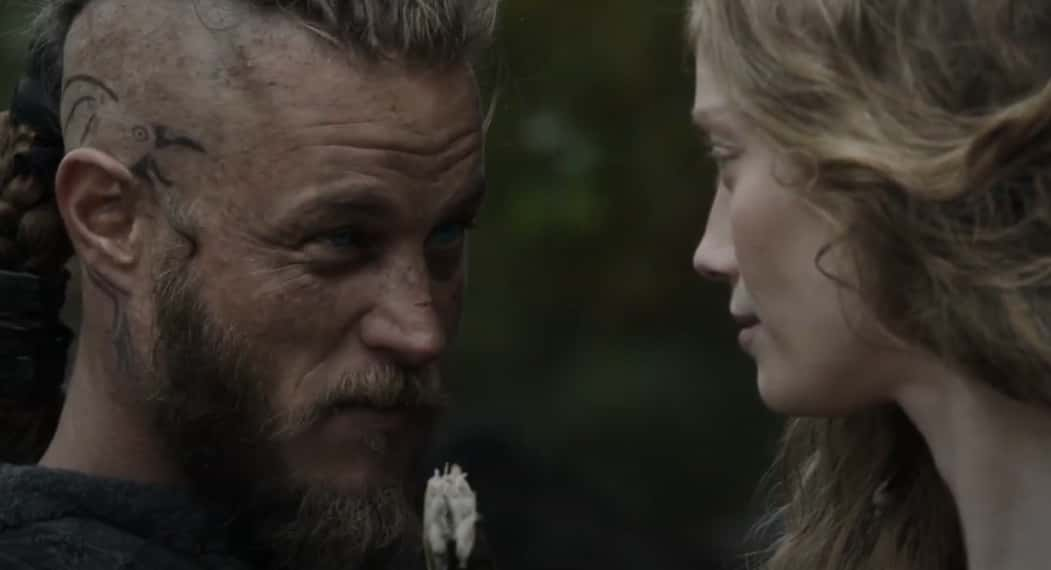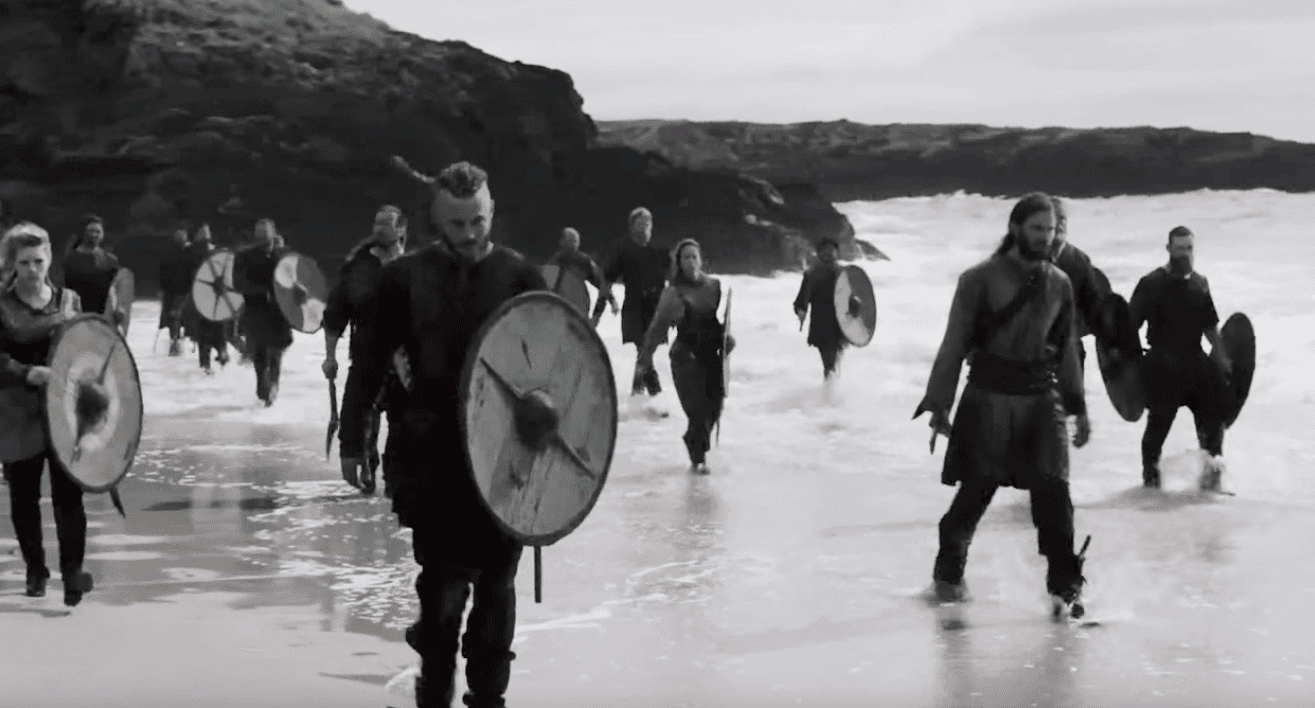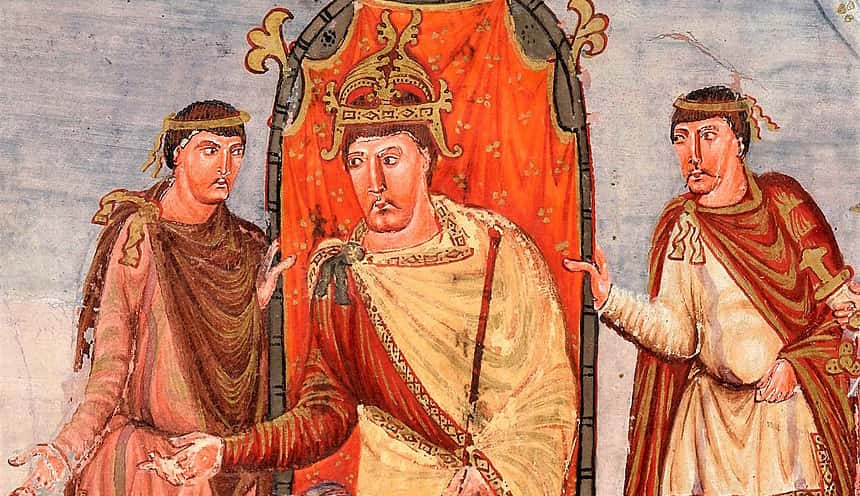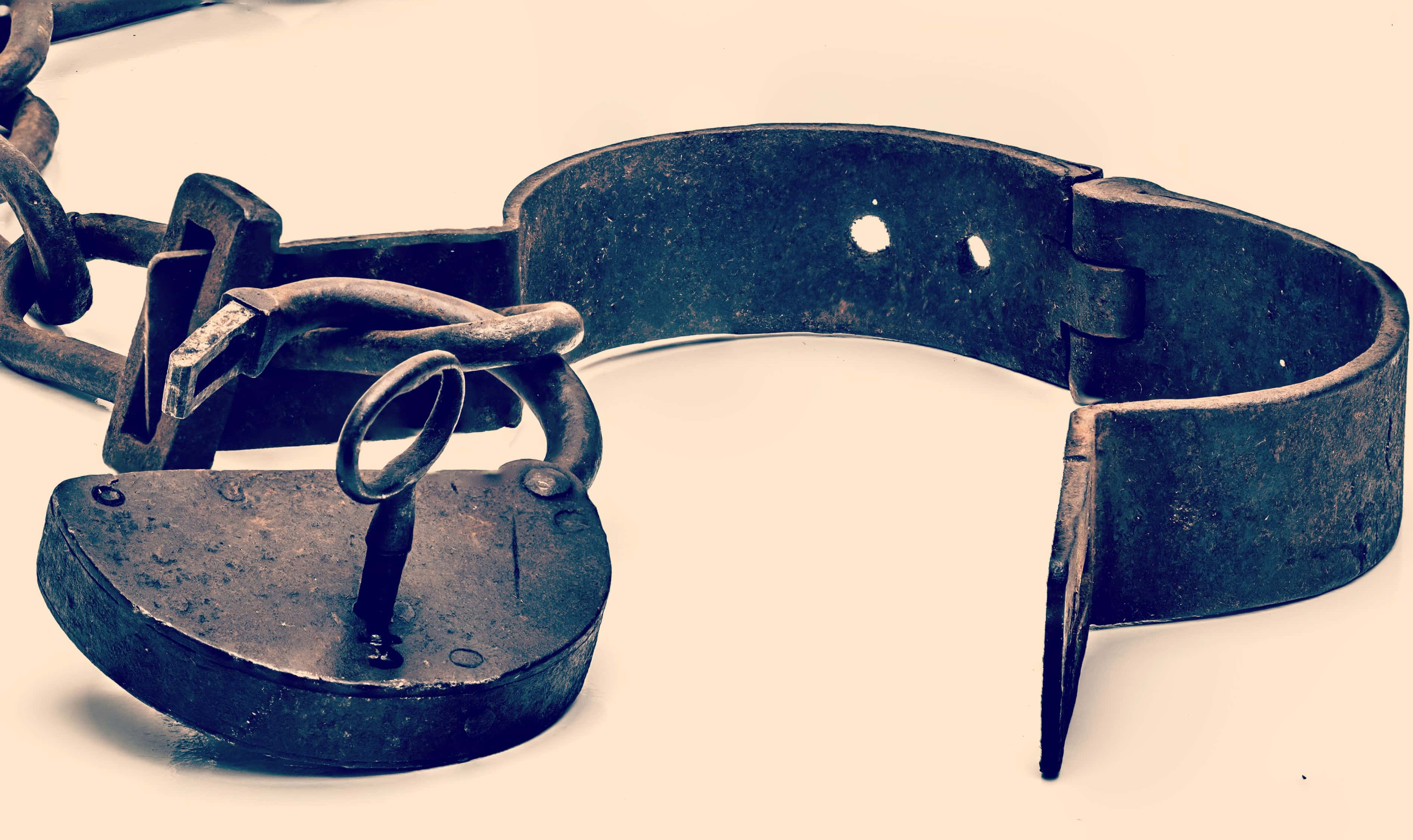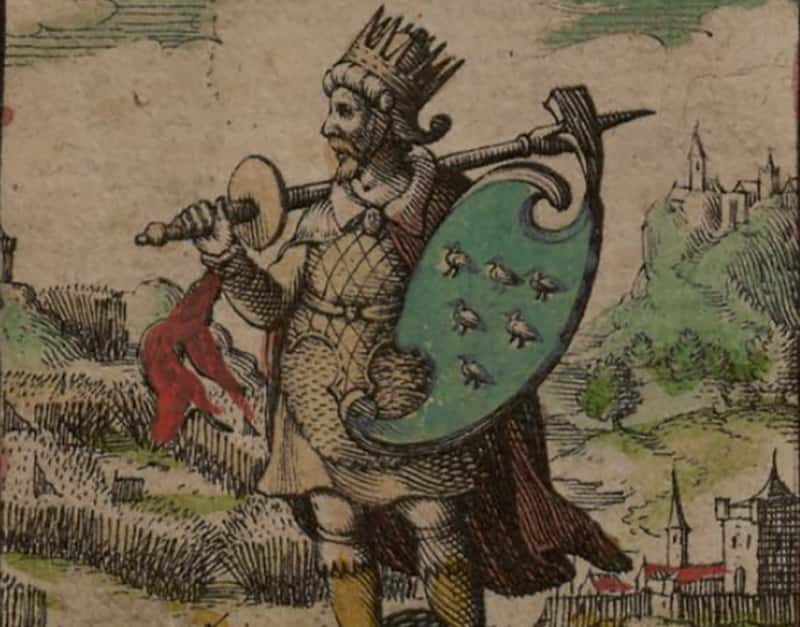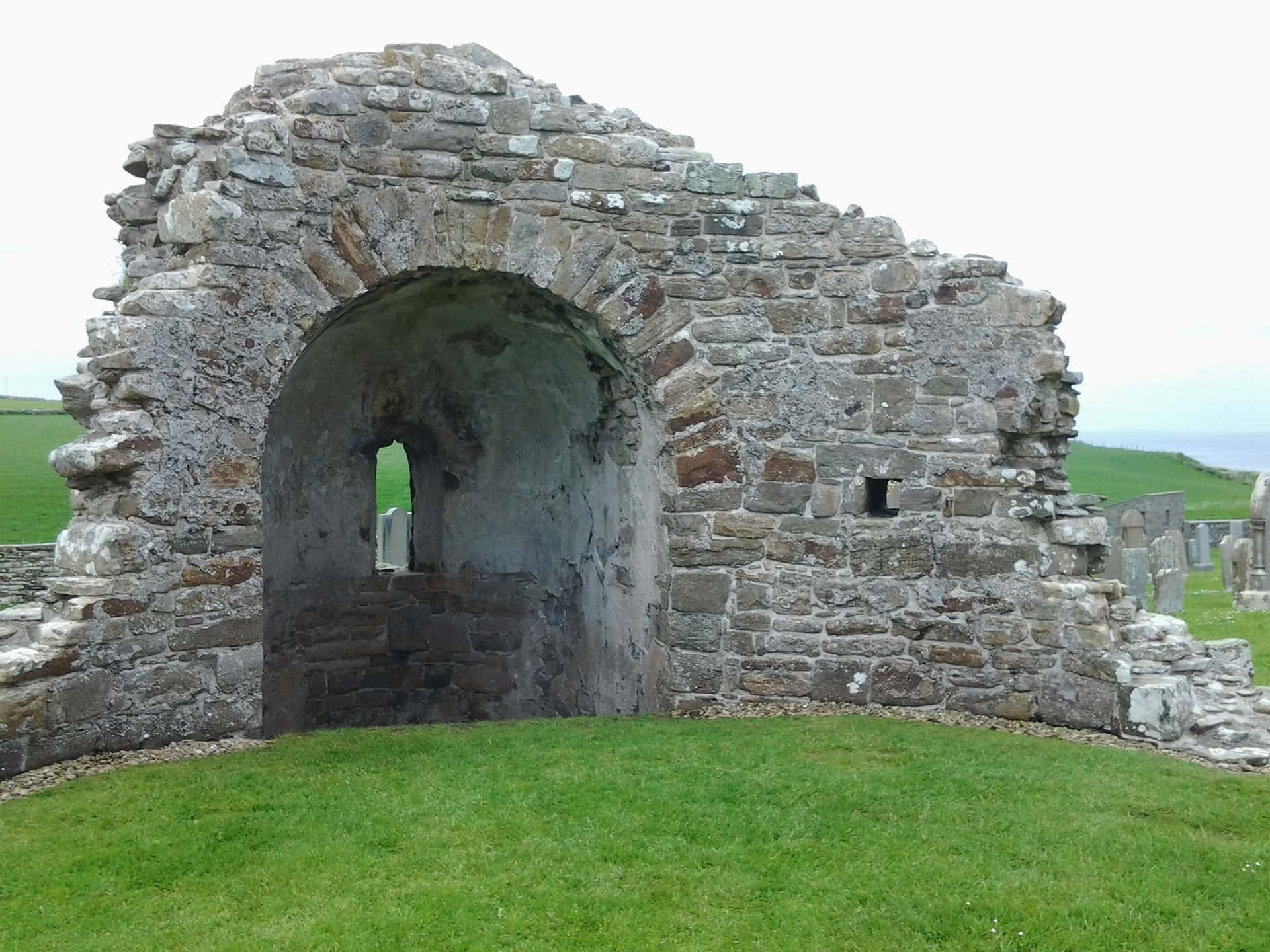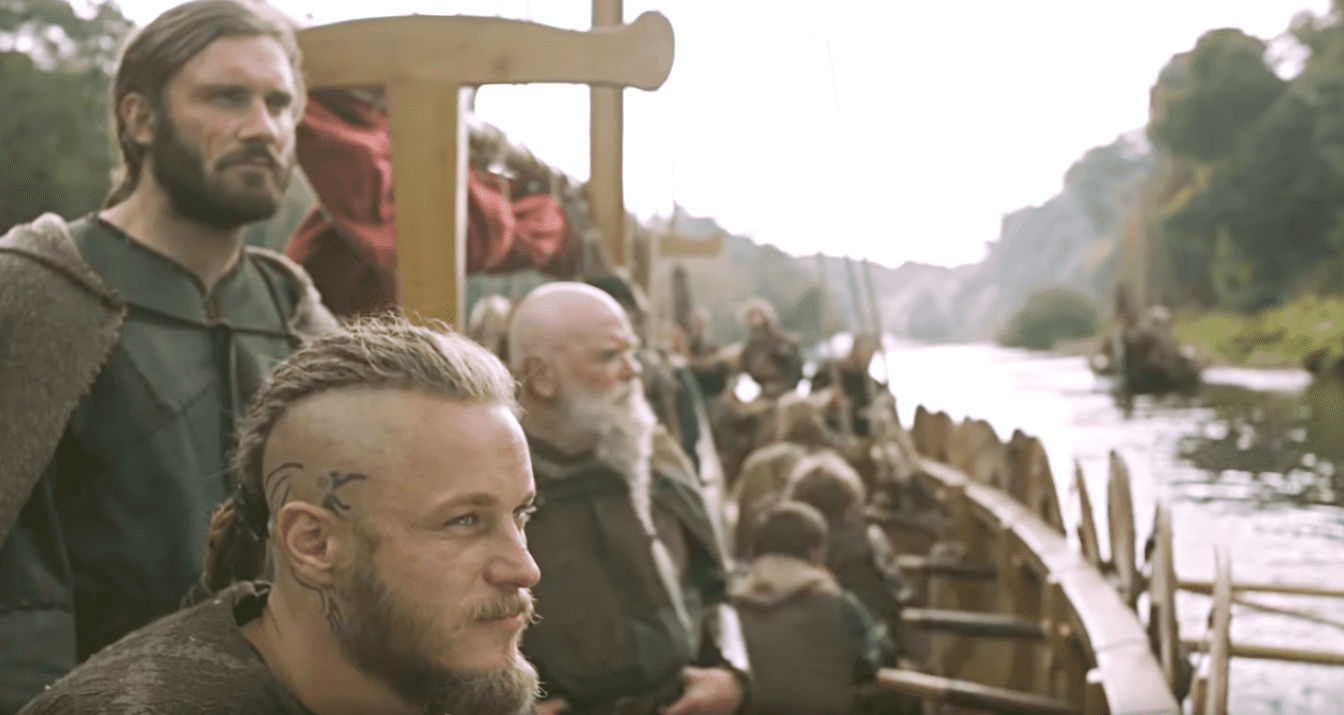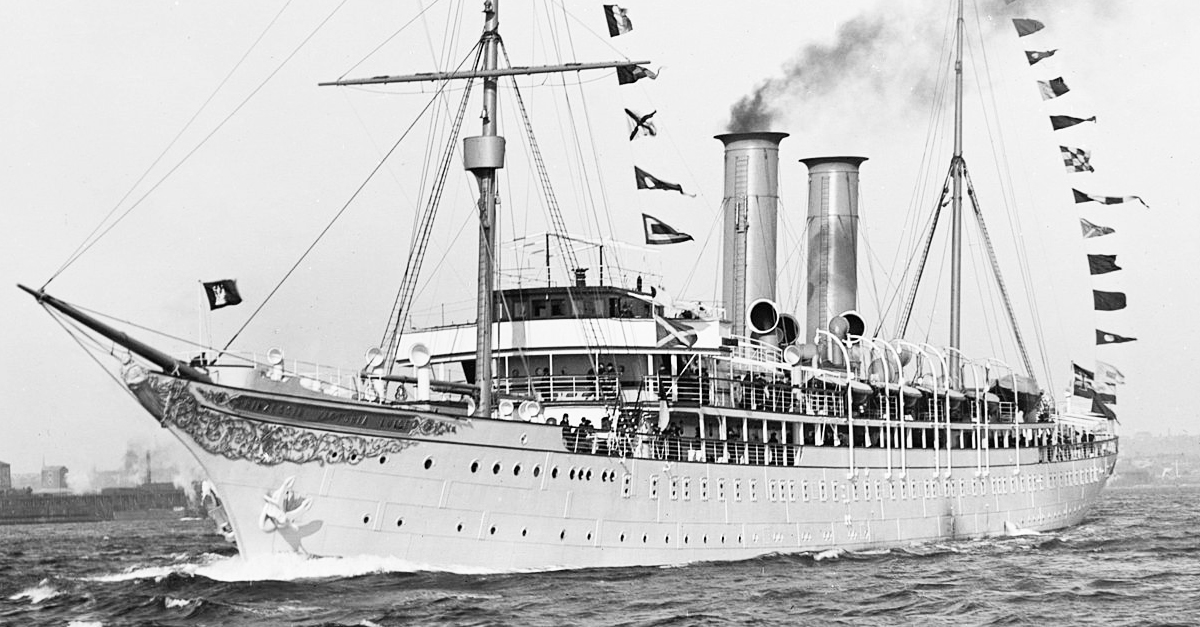Ragnar Lothbrok was the hero of the hit TV show Vikings, but who was this man really? A real person, or a myth created to inspire young men? Legend has it that he was a great Norse warrior who lived in the ninth century. While there is evidence to prove that his sons might have been real historical figures, the fantastic stories about Lothbrok himself are harder to confirm. However, all the stories agree on some things: He was hot-blooded, fearless, and always up for a challenge. Hold on tight as we unleash 50 ferocious facts about this warrior.
1. Family Tree
Legends claim that Lothbrok was the son of a Swedish King, Sigurd Hring, and a Norwegian princess, Asa. Sigurd was a mythical figure in his own right, a brutal warrior king who overthrew his cruel uncle Harold.
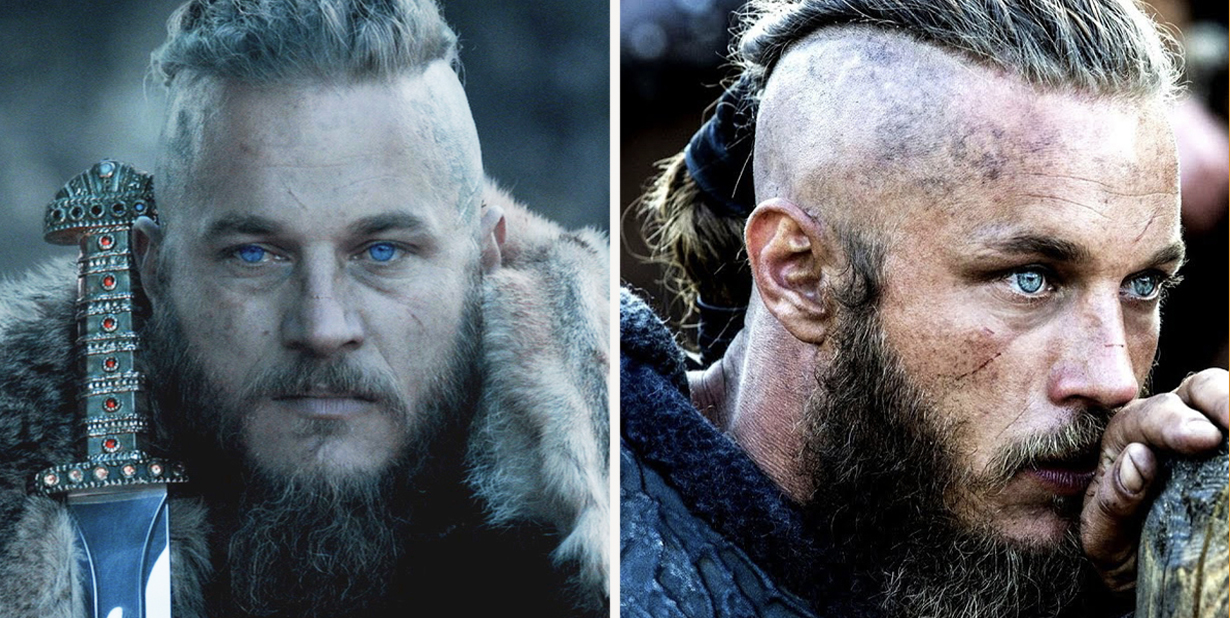
2. The First Wife
When Lothbrok became the king of Denmark, his very first act was to get his brutal revenge on the man who killed his grandfather: the Swedish King Fro. Lothbrok enlisted the help of a deadly shieldmaiden named Lagertha, and together, they viciously defeated Fro. So how did Lothbrok thank Lagertha for her help? He forced her to marry him! And if that's not bad enough, what he did next was even worse...
3. Wham, Bam...
The sagas claim that Lothbrok and Lagertha had a son, Fridleif, and two daughters, but this was no happy family. Once the three children were born, Lothbrok decided was done with Lagertha, and abandoned all four of them. Sounds like a real nice guy, this one.
4. Ways to Win a Wife
Oddly enough, Icelandic sagas celebrate Lothbrok’s marriages more than his conquests. Soon after he left Lagertha, he went on to marry a woman named Thora—but before he could claim her hand, he had to survive a brutal test. As the legend went, a powerful earl gave his daughter, Thora, a deadly snake as a gift. What he didn't realize was that the cute little viper would grow to become a monstrous beast.
The serpent began terrorizing the land, and the earl promised his daughter's hand in marriage to whatever warrior could kill it. Ragnar took up the challenge, and he managed to get both a nickname and a wife out of the deal.
5. The Name Says it All
Lothbrok is actually a nickname, and it means, of all things, "hairy breeches". According to the old sagas, Ragnar came up with a bizarre plan in order to defeat Thora's serpent. To ensure the monstrous beast couldn't bite him, he coated his woolen pants with tar to make them impenetrable. Lothbrok: 1, Serpent: 0.
6. A Father of Sons
In Icelandic tradition, after defeating the snake, Lothbrok had two boys, Erik and Agnar, with Thora. Evidently, the Danish sagas thought that wasn't quite exciting enough. In Danish stories, Lothbrok defeats not one, but two snakes to wed Thora, and has six sons with her: Radbar, Dunvat, Sigurd Snake-in-the-Eye, Bjorn Ironside, Agnar and Ivar the Boneless.
7. The TV Story
Travis Fimmel, who played Lothbrok on the History Channel's TV series Vikings, wasn't supposed to be the show's lead. In fact, Fimmel originally auditioned for the part of a much smaller character: Floki, a shipbuilder and Ragnar’s friend. That must’ve been one impressive audition!
8. He Took After His Mother
According to one account, Ragnar was tall, blonde…and a bit of a mamma’s boy. A saga called the Sogubrot said that “he was the biggest and fairest of men that human eyes have seen, and he was like his mother in appearance and took after her kin".
9. He Gave His Sons Cushy Jobs
Ragnar had a lot of sons, and he used them to rule the many nations that he conquered. He’d show up with his Vikings, conquer a region, then leave a son to govern. For instance, after killing an English king named Hama, he left his son Sigurd Snake-In-The-Eye in charge. When he brutally slaughtered the earls of Scotland, he left his son Radbard to clean up the mess. And let’s not forget his campaign in Norway, after which his son Fridleif got to rule.
10. He Took Back What Was His
Though he took lots of places by force, Ragnar actually had a claim to the throne of Sweden. So, when an outlaw king named Sörle showed up out of nowhere and took over, Ragnar’s revenge was particularly brutal. He met Sörle’s armies in battle…and utterly massacred them.
Then, as usual, he put one of his sons, this time Björn Ironside, on the throne, to make sure no one else tried to take what was his.
11. He Was Betrayed By His Own Son
Not all of Ragnar’s sons were by his wives. Apparently, three women wasn’t enough for this warrior. He had an affair with the daughter of a Viking named Esbjørn, and she gave birth to a child named Ubbe. According to legend, when Ubbe was a grown man, he and Esbjørn rose up and rebelled against Ragnar. It took yet another painful campaign to bring his illegitimate son to heel.
Like so much about Ragnar, this story is likely mythical, but Ubbe was indeed a real person, one of the Vikings who led the Great Heathen Army against England.
12. Blood and Gore
Everyone knows that the Vikings were ruthless warriors—but their methods were even more horrifying than we ever imagined. Case-in-point, the horrifying ritual known as the blood eagle. A form of execution, the blood eagle involved cutting into a person's back, tearing apart their ribcage, then pulling out their lungs from behind. It was said that the lungs looked like an eagle's wings. Allegedly, Ragnar and his family knew about the blood eagle all too well...
13. He Wasn’t The Most Loving Parent
One of the oldest surviving texts that mentions Lothbrok was written by William of Jumieges, from Normandy. William wrote about how Danish kings would exile their sons so they couldn’t rise up against them. In his account, he speaks of Lothbrok doing just this, sending his son Bjorn Ironside out of his realm.
Bjorn complied, and did what Vikings do best—raided and pillaged all across Europe, even leading his men into the Mediterranean.
14. Dying a Thousand Times
Some modern historians believe that Lothbrok was actually a combination of multiple men—and there's one very good piece of evidence for that fact. In the stories, Lothbrok suffers a brutal fate...and another...and another. Seeing as Lothbrok wasn't a cath, we're starting to think something doesn't add up...
15. Not Exactly a Warrior's Ending
In one retelling, a certain Ragnar or “Ragnall,” led a 120-ship-strong fleet to Paris in 845AD. However, an outbreak of dysentery onboard ended his life. Talk about a short career. He came, he conquered, and he…died.
16. Et Tu Brutus
Most people don't realize that Dublin was once a Viking stronghold—and it was also the site of one of Rangar's many painful ends. Another group of Vikings saw to his demise this time, but there's some debate as to how it happened. Some stories claimed they simply killed Ragnar in battle, while some claim that they captured him and made his final moments far, far slower and more painful.
17. Another Retelling, Another Killing
Other stories claim that Ragnar's life was taken by his rivals in a fjord in Northern Ireland or during a daring raid on an island in Wales. Still, his most famous, and by far the grisliest, ending occurred in England after being captured by a king...but more on that later.
18. Young Marriage
One awkward part about the show Vikings is that Alexander Ludwig, who plays Ragnar's son, is only 13 years younger than him. He's also only 15 years younger than Katheryn Winnick, who plays his mother. However, based on a disturbing Viking custom, this isn't necessarily inaccurate. In Norse culture, it was normal for children to be wed as soon as they hit puberty, so the idea of the 13-year-old Ragnar marrying the 15-year-old Lagertha isn't even that far-fetched.
19. Mysterious Beauty
Our man Lothbrok met his next wife (second in Icelandic tradition and third as per Danish accounts) in an unusual way. While sailing on the coasts of Norway, he sent his men to a farm to get some food. They came back with news of the peasants’ lovely daughter. Naturally, Lothbrok was intrigued, so he came up with a bizarre plan to meet her...
20. The Riddler?
Lothbrok sent a message to the girl, Kráka, to meet him on the ship—but for some reason, he couldn't just have a simple meet-cute. He told her to come neither undressed nor clothed, neither fed nor hungry, and neither alone nor with someone else. The word you’re looking for is…weird!
21. No Sweat, Sherlock
Kráka rose to the challenge. She draped a fishing net and her own long hair over her body, took a bite of some food without really eating it, and went to see Lothbrok with a dog by her side. He was so awed by her smarts that he married her. And why not? Beauty and brains do make for a killer combo!
22. A Match Made in Heaven
It wasn't until after Ragnar Lothbrok married Kráka that he realized she was not who she appeared to be. She wasn't Kráka, the demure peasant's daughter. Rather, she was named Aslaug, and she was the daughter of a legendary dragon-slayer—Sigurd the Volsung.
23. Battle of the Wives
In Vikings, Aslaug wasn’t living with peasants, and Lothbrok tries to remain loyal to Lagertha after being attracted to her, but we all know how that story goes. Lagertha refuses to put up with her husband’s second wife and divorces him, leading to an endless debate among fans over the love triangle, and just who was right for Ragnar after all.
24. Do You See What I See?
One thing TV Aslaug had in common with her mythical counterpart was that she possessed the gift of sight. She prophesied one of their sons would be born with the mark of a dragon’s eyes, foresaw her son Ivar’s “bonelessness,” and foretold that Lothbrok’s mission to England would result in his defeat.
25. From Farmer to King
In Vikings, Lothbrok is a farmer in the village of Kattegat who becomes king after several successful battles and conquests. It's a rags to riches story that anyone can get behind—but it was a fabrication of the show. In the Icelandic and Danish sagas, Lothbrok was a prince.
26. Conquests
The show Vikings sees Lothbrok sail to famed cities such as Paris and London to raid and pillage. This part, at least, was taken from the legends, as the mythological Lothbrok did indeed attack these cities.
27. The Viking Age
Vikings covers some of the most legendary moments in Norse history. One of these was the attack on Lindisfarne, an island off the coast of England, in 793. Many historians claim this to be the beginning of the Viking Age, so it makes sense the series would show Ragnar and co. attacking the island. Later in the series, we see another real event: The Siege of Paris. All of these made for exciting episodes...but there are two big problems here...
The Siege of Paris happened 50 years after the attack on Lindisfarne, so either Ragnar is a time-traveler, or the show fudged the dates a little bit. There's also the fact that there's absolutely no record that Lothbrok was at Lindisfarne, but why let that get in the way of a good story?
28. An Element of Surprise
Lothbrok’s conquests, like all Viking raids, were successful for one simple reason—they took the opposition by surprise. Lothbrok and his men took advantage of their enemies' piety and tried to attack when they knew that their opposition would be a church. For instance, the famous Siege of Paris in 845 CE took place on Easter Sunday, when the Frankish citizens were attending mass.
29. Vengeful Viking
Sure, the Vikings loved to raid and pillage, but Lothbrok had a darker for invading Paris in 845 CE: revenge. The king, Charles the Bald, had awarded him some land a few years ago, but he lost it, and with that he also lost the king’s support. Naturally, that didn’t really fly with our Viking warrior and he set off to win back land and riches.
30. Dealing with Resistance
Battle is brutal and terrifying, and Lothbrok made sure the king understood that clearly. Charles the Bald had made a fatal mistake and split his forces in two—one on either side of the Seine. Lothbrok saw this as an opportunity, and swiftly attacked one of the groups. The Franks were quickly routed...but Ragnar wasn't done with them yet...
31. A Message
Ragnar's Vikings decimated the Frankish soldiers, but they made sure to take some of them alive—111 of them, to be exact. They dragged these men out onto an island on the Seine, and had them all hanged as a sacrifice to Odin. Ragnar left their bodies hanging in the wind, a chilling warning to Charles and his men.
32. A Compromise
After viciously sacking Paris, the Vikings finally agreed to leave...for a price. Charles the Bald offered them 7,000 livres, roughly 5,760 lbs, of gold and silver. Although he was criticized for bowing to Viking pressure, the king had other issues to deal with, such as family quarrels, regional conflicts, and unhappy noblemen. He considered this a fair price to pay if it could prevent Viking raids in the future.
33. Fast to Assuage Fury
The Vikings used their knowledge of Christianity to take Paris—but this came with dark conquences. Upon leaving France, they were beset by a plague and became convinced it was because they had been exposed to Christianity. To appease their Nordic Gods, they fasted in penance and prayed for forgiveness. Apparently, that worked!
34. The Second Siege
Apparently, Ragnar's deeds inspired his ancestors. The Vikings besieged Paris again in 885 CE, under the leadership of Sigfred, Sinric, and Rollo. This time, the siege continued for months, as Odo, the Count of Paris did not agree to pay them tribute. The siege went on for months, until finally the Frankish king, Charles the Fat, arrived with an army. But nobody expected what happened next...
35. Charles the Fat...And Cowardly
Rather than meet the fearsome Vikings in battle, Charles the Fat simply paid them a ransom and allowed them to sail on to Burgundy, where they continued their plundering. This embarrassing show of weakness infuriated Odo, and many citizens. Charles ended up dying just a couple years later, and the people ensured the bold Odo, who had defied the Vikings, took his place as king.
36. The Siege on TV
The two historic sieges of Paris were combined on the Vikings TV show, but on screen they played out a little differently. Lothbrok fakes his passing, claiming his last wish was to be baptized. The Franks drag his coffin into the city for burial, but as soon as he's inside, he bursts forth, alive and armed to the teeth, signaling his warriors to take over the city.
It was a dramatic and exciting episode—and one that actually had some basis in history. According to some accounts, another Viking by the name of Hastein pulled the same trick to sack the city of Luna in Spain.
37. Oh Brother
Vikings shows Lothbrok to have a brother, Rollo, who is often jealous of him and has betrayed him several times. Historically, there is no evidence that Lothbrok had a sibling. Rollo’s character is based on Norwegian Viking, Gange-Rolf, who became the king of Normandy and who was born in 846 CE, which would make him a toddler while Lothbrok was fighting his wars.
38. Odin
Lothbrok’s character has been likened to the God he worshipped: Odin. A one-eyed wise traveler and the leader of the Norse Gods, Odin was also the one who was called upon before war. He would take the slain with him to Valhalla, the hall for slain warriors. Michael Hirst (creator of Vikings) likens Lothbrok’s need to explore and conquer new territories to Odin’s desire to see the world.
39. Birds of Omen?
Ravens plan an important role in Vikings as they were said to be Odin’s own agents and messengers. Lothbrok and his men carry banners with pictures of ravens on them.
40. Divine Retribution
One of the historians who wrote about Lothbrok was a man named Saxo Grammaticus. Saxo was clearly a massive Lothbrok fanboy and detailed his exploits in extreme detail—but when it came to the warrior's fate, Saxo had to admit Lothbrok had it coming. So why did Saxo have a change of heart? The answer is simple: Saxo was a Christian writing in a Christian time, while Lothbrok was a pagan. He could think Lothbrok's adventures were cool and all, but in the end, he couldn't fully support any pagan.
41. The End was the Beginning
Travis Fimmel hit the jackpot when it came to landing the role of Lothbrok. Not only was the character a ton of fun to play, but he was originally supposed to die in the first season. The showrunners clearly realized they had something with this guy, though, and ended up keeping him around until season 4.
42. Immortalized in Song
An old Norse poem titled Krákumál became hugely popular after it was translated by a Danish scholar, in 1636. In English it was known as The Death Song of Ragnar Lothbrok. The tale beloved by readers who enjoyed reading about a heroic Viking warrior, passionate in love and fearless in battle, who was delighted to get to Valhalla and party with the gods. It is this poem that recounts Lothbrok’s last encounter with Ælla in detail.
43. He…Was a She?
While it’s almost impossible to tell what is fact and what is fiction when it comes to Lothbrok, there are some firm sources about him…or her? One of the only runic inscriptions referring to Ragnar was carved into a rock on Orkney in the 12th century. It says: “This howe was built a long time before Lodbrok's. Her sons, they were bold; scarcely ever were there such tall men of their hands".
This has led some historians to believe that Lothbrok was real, and did indeed have many famous sons, but she was their mother.
44. Invading England
Legend has it that Lothbrok got insecure about his own prowess as his sons were growing older and getting stronger. This motivated him to lead a campaign to capture England. Since he obviously did not suffer from low self-esteem, he decided it would bring more glory to him if he sailed to England, and successfully invaded it, with just two ships. As you can imagine, that didn't go well...
45. The King’s Revenge
King Ælla of Northumbria wasn't about to let Ragnar run over this country with two measly ships. He captured Lothbrok and tried to kill him in several ways, but when none were successful. Don't worry though, Ælla had a specific execution method reserved for particularly hard-to-kill enemies...you guess it: a pit filled with deadly snakes. It was Ælla who was to blame for Ragnar's legendary demise.
46. Last Words
I would scream like a baby if someone threw me into a pit of snakes...but I'm not Ragnar Lothbrok. So the story goes, the irrepressible Viking didn't even break a sweat at being hurled into a pit of poisonous serpents. In fact, he merrily predicted that Odin would take him to the courts of Valhalla, where all the great Norse heroes feasted after passing.
He also allegedly warned Ælla that his sons would avenge him—but he never mentioned just how horrifying their revenge would be.
47. The Struggle is Real
Vikings had plenty of options to choose from when it came to showing Ragnar's demise, but I bet we can all guess which one they went with: the snake pit. Anyone who's seen the show knows how realistic that scene was—and that's largely because they used real snakes. In fact, Fimmell had to endure several painful snake bites, but I'd say the final product was worth it.
48. The End of Aella
According to the sagas, Rangar's son Ivar the Boneless and his brothers assembled a massive force, called the Great Heathen Army, to attack England and avenge his father's fate. After a devastating campaign, they finally managed to capture Ælle. According to some historical sources, the king dies in battle. However, other sources maintain that Ivar saved a far more disturbing fate just for Ælle.
You guessed it: the Blood Eagle.
49. Heathen Army
While the story of Ivar's revenge is likely just a legend, the Great Heathen Army is actually historically verified. Several sources cite Vikings, including Ivar the Boneless, leading a massive army to invade and conquer England, defeating the kings Osberht, Edmund, and Ælle in battle. Ivar then began to rule over a kingdom that stretched across Dublin and York.
50. Edmund’s Story
Another version of Lothbrok’s fate saw him was staying with King Edmund, who was a kind and friendly ally, when the King’s huntsman kills him out of jealousy. Lothbrok’s sons are told it was Edmund who killed their father, which is why they seek revenge from him. A particularly grisly twist is that they tie him to a tree, shoot arrows at him and then behead him and play football with his head.
Sources: 1, 2, 3, 4, 5, 6, 7, 8, 9, 10, 11, 12, 13, 14, 15, 16, 17, 18, 19, 20, 21, 22


